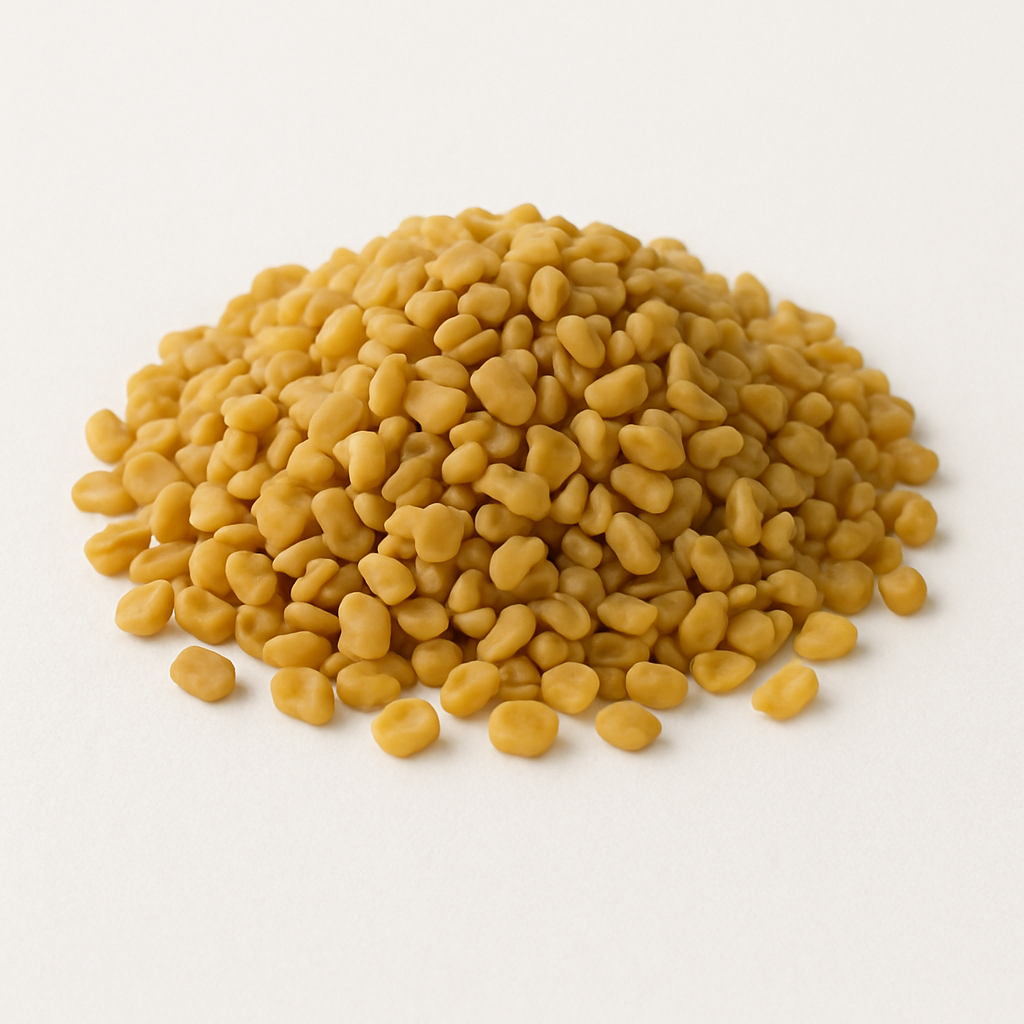Wadi
Fenugreek seeds
Fenugreek seeds
Couldn't load pickup availability
Primary Uses:
1. Culinary uses:
- Sprouting: Fenugreek seeds can be sprouted and added to salads or sandwiches for a crunchy texture.
- Cooking: Fenugreek seeds are commonly used in Indian cuisine to add flavor to curries, dals, and vegetable dishes.
- Baking: Fenugreek seeds can be ground into a powder and used as a spice in breads and pastries.
2. Flavoring uses:
- Seasoning: Fenugreek seeds have a slightly bitter and nutty flavor that can be used to season dishes.
- Marinades: Fenugreek seeds can be added to marinades for meat or tofu to add flavor.
3. Aroma uses:
- Tea: Fenugreek seeds can be steeped in hot water to make a tea that has a slightly sweet and nutty aroma.
- Incense: Fenugreek seeds can be burned as incense to create a warm and inviting aroma.
Other Uses:
1. Medicinal uses: Fenugreek seeds are used in traditional medicine to treat a variety of ailments such as digestive problems, respiratory infections, and skin conditions.
2. Culinary uses: Fenugreek seeds are commonly used as a spice in Indian and Middle Eastern cuisine, adding a distinct flavor to dishes.
3. Folklore uses: In some cultures, fenugreek seeds are believed to have mystical properties and are used in rituals and spells.
4. Insect repellent: Fenugreek seeds are sometimes used as a natural insect repellent, particularly against mosquitoes.
5. Dyeing agent: Fenugreek seeds can be used to dye fabrics and textiles, producing a range of yellow and brown shades.
6. Ornamental uses: Fenugreek plants can be grown as ornamental plants, with their attractive leaves and flowers adding a decorative touch to gardens and landscapes.
7. Religious uses: Fenugreek seeds are used in some religious ceremonies and rituals, particularly in Hinduism and Islam.
Caution:
1. Can cause allergic reactions in some individuals.
2. May interact with certain medications and cause adverse effects.
3. Can lower blood sugar levels, which may be dangerous for people with diabetes or hypoglycemia.
4. May cause gastrointestinal issues such as bloating, gas, and diarrhea.
5. Can have a bitter taste, which may not be appealing to some people.
6. May have a strong odor that can be off-putting to some individuals.
7. Can be difficult to digest for some people, leading to discomfort and digestive issues.
8. May not be suitable for pregnant or breastfeeding women, as it may affect hormone levels.
9. Can cause skin irritation or rashes in some individuals when used topically.
10. May not be readily available in some areas, making it difficult to incorporate into a regular diet.
Share


